Planning Higher Education in the Netherlands: A Parent's Guide for Families
As international parents in Almere, understanding the Dutch education system is key to helping our children choose the right path for their future. This guide explains the three main routes available—Research Universities (WO), Universities of Applied Sciences (HBO), and Vocational Education (MBO). Living in Almere also offers unique advantages with easy access to top universities in Amsterdam and Utrecht, plus a supportive network of fellow international families. Whether your teenager is suited for academic research, hands-on learning, or skilled trades, this guide helps you support their educational journey with confidence.
© J. Dokta/Expat Info Almere
9/21/20254 min read


Just like every parent, we want the best educational future for our children. Living in the Netherlands, there are learning curves to understand the Dutch education system. It's a lot of new information and could be confusing. There is no single solution to simplify it, but at Expat Info Almere, creating an easy-to-understand piece of information is always our priority. This article aims to help our readers understand the available pathways and support our children in making informed decisions about their academic future.
Dutch Higher Education in Short
To start with, the Dutch higher education system has a dual-pathway system designed to match different learning styles and career aspirations. Think of it as offering your child two distinct routes to success, each with its own strengths and opportunities.
The Two University Pathways Explained
Research Universities (Universiteiten/WO)
What they are: Traditional academic universities focusing on research and theory
Best for: children who love analyzing, questioning, and exploring ideas deeply
Career outcomes: Academia, research positions, consulting, law, medicine, policy work, and other roles that require WO diploma
Degree structure: 3-year Bachelor's + 1-2 year Master's if desired
Learning style: Independent study, critical thinking, theoretical exploration
Universities of Applied Sciences (Hogescholen/HBO)
What they are: Practice-oriented institutions blending theory with real-world skills
Best for: children who learn best through hands-on experience and practical projects
Career outcomes: Direct entry into professional roles in business, healthcare, engineering, creative industries
Degree structure: 4-year Bachelor's + 1-2 year Master's (includes internships) if desired
Learning style: Project-based learning, group work, industry placements
Vocational Education (MBO): Should We Consider?
The short answer is yes!
Don't overlook MBO (Vocational Education). It's well respected in the Netherlands and leads to excellent career prospects. Unlike in many other countries where vocational training is seen as a "second choice," MBO in the Netherlands is chosen by many as a prestigious pathway that often leads to higher earning potential and job security than traditional university routes.
To understand MBO's value better, explore the work of Karim Amghar, a prominent advocate for vocational education in the Netherlands. His research and advocacy highlight how MBO graduates often out-earn university graduates in their first decade of work and enjoy greater job satisfaction due to the direct connection between their training and career roles.
Why MBO Might Suit Our Child
Immediate job market entry: high employment rates upon graduation
Hands-on learning: perfect for practically-minded children
Flexibility: continuing to HBO universities afterward is possible
Financial benefits: lower costs, earlier earning potential
Respected careers: many professions require MBO training
MBO Levels Explained for Parents
Level 1-2: basic to intermediate skills (assistants, support roles)
Level 3: independent professional level (skilled technicians, specialists)
Level 4: management track or advanced specialisation (team leaders, specialised professionals)
Popular MBO fields: healthcare, technology, hospitality, creative industries, business administration
Helping Our Children Choosing the Right Study Path for Themselves
Choosing a study path is not an easy task. For parents and perhaps also for our children, there will be a lot of what if involved. But just like many other things in life, at some point we need to make a decision to move forward.
Here we compile a list of questions or discussion prompts that could help mapping out the possibilities and in the end, having a clearer picture of options.
For Research University (WO) Track:
Does our child enjoy reading extensively and writing analytical papers?
Are they comfortable with abstract thinking and theoretical concepts?
Do they ask "why" and "how" questions frequently?
Are they considering careers in research, academia, or fields requiring advanced degrees?
For Applied Sciences (HBO) Track:
Does our child prefer learning by doing rather than just reading about topics?
Are they drawn to practical problem-solving?
Do they work well in teams and enjoy collaborative projects?
Are they interested in careers with clear professional applications?
For MBO (Vocational) Track:
Does our child have a clear idea of what job they want?
Do they prefer immediate practical training over extended academic study?
Are they eager to start earning and working sooner?
Do they learn best through hands-on experience?
To help further, we can also check Studiekeuze (in Dutch) together with our children to educate ourselves more about education options in the Netherlands.
Advantages of Living in Almere for Our Children's Education
Location Benefits
Amsterdam access: 30-minute train ride to multiple universities (VU, UvA)
Utrecht connections: direct access to Utrecht University and applied sciences
Cost advantages: lower living costs than Amsterdam while maintaining easy access
Modern infrastructure: Excellent transport links throughout the Randstad
Growing Educational Hub
Almere is developing its own higher education facilities, meaning there will be more opportunities even closer to home in the future
Practical Considerations for International Parents
Language and Preparation
Dutch Language Path:
Most programs taught in Dutch
Requires NT2-II proficiency (advanced Dutch)
Consider starting Dutch lessons early to have more study options
English Language Path:
Growing number of English-taught programs
Mainly at Master's level, some Bachelor's programs
Popular in business, engineering, and international studies
May limit some career options in Dutch job market
Financial Planning for International Families
Disclaimer: the information below is gathered from university and government websites for academic year 2026-2027. For a more accurate information, please check with the universities.
For Dutch, EU/EEA, Surinamese, and Swiss students :
University tuition: €2.601 per year
Student financing available through DUO
Part-time work permitted (16 hours/week)
For non-EU/EEA, Surinamese, and Swiss students:
University tuition: €22.500 per year
Same living costs as EU students
Limited work options during studies
Consider scholarship opportunities and start researching early
Ways to Reduce Costs:
Consider MBO programmes, especially when it suits our children preference. MBO programmes are often free or less expensive
Student housing is cheaper than private accommodation
Many universities offer merit-based scholarships
Part-time study options available for working students
Expat Info Almere
GET IN TOUCH
© 2025, Expat Info Almere. All rigths reserved.
info@expatinfoalmere.com


